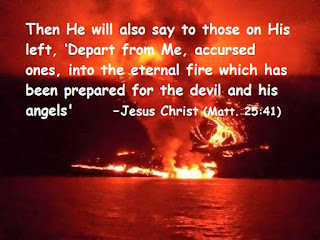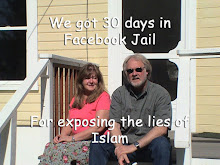The HERMENEUTICS of
DEATH and ETERNAL JUDGMENT
Three Terms - Sheol, Hades and Gehenna
by Dale Brown
1. SHEOL - (Heb. "underworld" 66 times in Hebrew Old Testament) a conscious, invisible place that is never full (Psm. 6:5, Isa. 14:9-16, Prov. 27:20)Rabbinic literature, both Talmud and Apocryphal describe a conscious life after death. The KJV translates Sheol as "hell" 31 times, and "pit" three times. This inconsistency in translation has resulted in annihilationists such as the Adventists and JW's teaching that Sheol means simply grave. But graves can be robbed, defiled, seen, visited, decorated, uncovered, etc. but not so of Sheol. Because of the many attacks on the Scripture since the KJV scholars have had to take a closer look and become more and more definitive about terms. (Matt. 23:24, 2 Tim. 2:14)
The O.T. is rather vague in it's description of Sheol; thus we are given the principle of progressive revelation. Always interpret the O.T. in the light of the New Testament didactic literature.
2. HADES - (Grk, "unseen") 71 times in LXX. It is the Greek equivalent for Sheol 64 times. Never is it used for grave. Hades is not simple death (Rev. 1:18). Hades is not hell (The KJV shows hell being thrown into the lake of fire) (Rev. 20:13,14)
Hades of the rich man and Lazarus illustration portrays judgment, yet intertestament progression. (Luke 16:19-31, 2 Pet. 2:9)
Jesus triumphed over death and Hades (Acts 2:31, Rev. 1:18)
Jesus made proclamation to spirits in prison. (1 Pet. 3:18-20, Eph. 4:8-10)
3. GEHENNA - (Grk, "the valley of Hinnon") this valley just outside of Jerusalem was considered "unclean" by pious Jews because of sacrifice done to pagan deities in past ages (2 Chr. 28:3). It became the common illustration of God's final judgment, hell.
Gehenna during Christ's time as in Josiah's (2 Kgs 23:10, Jere.7:31) had been turned into a garbage dump for unclean corpses and city trash. The fires never stopped burning and the worms never stopped eating (Isa. 66:24, MK 9:43-48).
The Talmuds, as did Jesus, referred to a place of eternal, conscious punishment for the wicked after the resurrection (Matt. 25:30, 41, 46). How can hell be dark? God is light, therefore eternal separation from God is sometimes referred to as black darkness (Jude 13, 2 Pet 2:4, 17).
Jesus authority and view of Hell (Gehenna, Matt. 10:28)
Degrees of punishment (Lk. 12:47,48)










